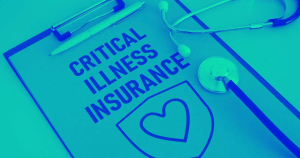You probably already have health, dental, and vision insurance — maybe even a flexible spending account (FSA). At first glance, it seems like you’re financially protected if an accident occurs. But here’s the catch: traditional health insurance doesn’t always cover every expense that comes with an unexpected injury.
An accidental fall, a sports injury, or even a minor household mishap can lead to costs beyond what your health plan covers. That’s where accident insurance can make a big difference. This type of coverage provides a cash benefit directly to you, giving you the flexibility to manage medical bills, transportation costs, or even everyday expenses while you recover.
Why Accident Insurance Matters
Imagine this: you’re standing on a chair to change a ceiling light bulb, lose balance, and fall. That simple accident could lead to multiple expenses — an ambulance ride, hospital stay, diagnostic tests, medications, and physical therapy. The average emergency room visit in the U.S. costs more than $1,100, and that’s before follow-up care or rehabilitation. On top of that, you may need to spend extra money on rideshares, food delivery, or household help while you recover.
With accident insurance, you receive a lump-sum payment that you can use however you see fit — from paying deductibles and co-pays to covering groceries or transportation.
Still unsure if it’s worth it? Here are four compelling reasons to consider accident insurance:
1. Accidents Are More Common Than You Think
No one expects to end up in the emergency room, but accidents happen every day. U.S. hospitals see about 38 million ER visits annually due to unintentional injuries. Children are especially at risk — more than 775,000 kids under 14 are treated each year for sports-related injuries.
Accident insurance helps give peace of mind, knowing you and your family have an extra layer of financial protection if the unexpected happens.
2. Injuries Can Disrupt Your Work and Income
Recovering from an accident often requires time away from work. You might need days or even weeks off for surgeries, therapy sessions, or mobility recovery. In severe cases, working could be impossible for a period of time.
When medical bills pile up and your income drops, it can put real stress on your finances. Accident insurance can provide supplemental funds to cover everyday expenses — from rent and utilities to childcare — while you focus on healing.
3. Coverage Is Flexible and Usually Guaranteed
Unlike some types of insurance, accident insurance typically doesn’t require medical exams or health questionnaires. If you’re actively employed, coverage is usually guaranteed regardless of preexisting conditions.
Another advantage is portability. In many cases, you can keep your policy even if you change jobs, as long as you meet certain requirements. This makes it a practical benefit that adapts to your career and lifestyle changes.
4. It Covers More Than Just Medical Bills
Accident insurance goes beyond paying for immediate medical care. Many policies include additional benefits for accidental death, loss of limbs, paralysis, or blindness. While no one likes to imagine these scenarios, having financial support in the event of a life-altering accident can help protect your loved ones from overwhelming expenses.
How to Enroll in Accident Insurance Through Work
The easiest way to get accident insurance is often through your employer. Many companies include it in their voluntary benefits package, allowing employees to sign up during open enrollment.
Here’s why getting it through your workplace makes sense:
-
Convenience: No need to research and compare multiple policies on your own.
-
Payroll Deduction: Premiums can be automatically deducted from your paycheck, so you don’t have to worry about monthly bills.
-
Group Rates: Employers often negotiate better rates, making accident insurance more affordable.
If your employer doesn’t offer it, check if your spouse’s benefits package does. Open enrollment is the perfect time to evaluate whether adding accident insurance is the right move for your family.
Final Thoughts
Accident insurance is not a replacement for health coverage, but it’s an important complement. Medical, dental, and vision insurance take care of a big portion of healthcare costs, but they don’t always account for the out-of-pocket expenses or the financial setbacks that follow an injury.
From ER bills and rehab to missed work and everyday expenses, accident insurance provides flexible cash benefits to ease the burden. Considering how common accidents are, having this type of protection can give you peace of mind — and financial security — when you need it most.







